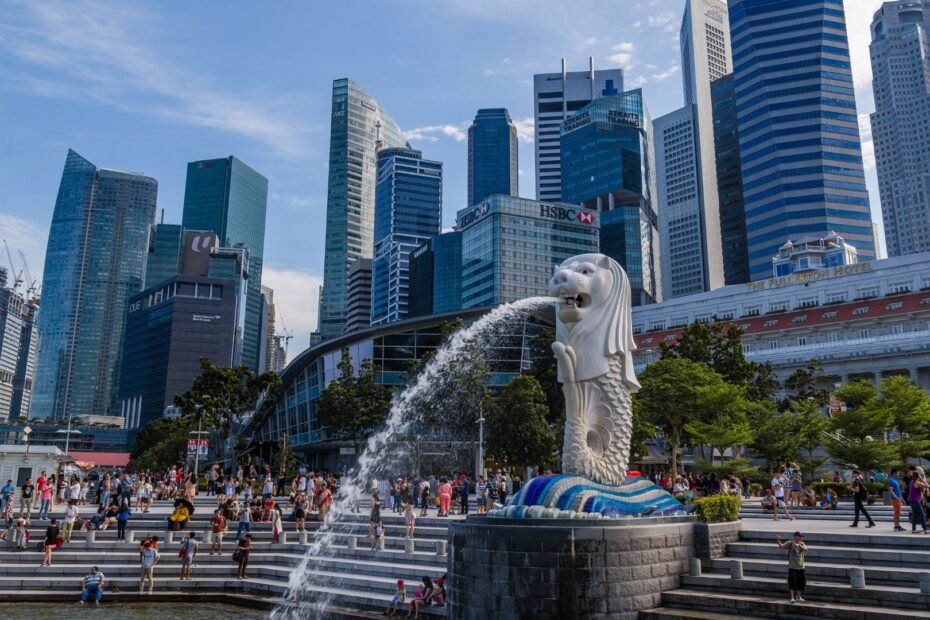The Chinese Embassy in Singapore recently issued a statement urging its citizens to refrain from all forms of gambling within the city-state. This advisory highlights China’s ongoing efforts to curb cross-border gambling activities by its citizens, particularly in Southeast Asia, a popular tourist destination with thriving casino industries.
Chinese Embassy in Singapore Crackdown on Cross-Border Gambling
According to Chinese law, gambling overseas is strictly prohibited. With Singapore boasting two prominent casinos – Las Vegas Sands and Genting Singapore – and Southeast Asia emerging as a major gambling hub, Chinese authorities expressed concern about the potential consequences for their citizens abroad.
The embassy’s statement emphasizes that “even if overseas casinos are legally opened, cross-border gambling by Chinese citizens is suspected of violating the laws of our country.” This reinforces the government’s stance and warns citizens about the legal repercussions they might face. Additionally, the embassy warns it may be unable to provide consular protection for individuals engaging in illegal gambling activities.
Heightened Efforts to Combat Illegal Activities
China’s crackdown on cross-border gambling extends beyond Singapore. Similar warnings were issued to Chinese citizens in South Korea and Sri Lanka, highlighting a broader regional effort.
The Philippines serves as a recent case study. In February 2024, collaborative efforts between Chinese and Philippine law enforcement agencies led to the repatriation of over 40 Chinese nationals involved in offshore gambling violations. This incident underscores the seriousness with which China views such activities and its commitment to working with international partners to combat them.
The Chinese government’s disapproval of gambling extends to its domestic sphere as well. “The Chinese government has always opposed any form of gambling,” stated the embassy in the Philippines. This aligns with the country’s limited legal gambling options, with state-sanctioned lotteries being the only officially permitted form.
Combating Associated Risks

Beyond legal concerns, the embassy cited potential dangers associated with cross-border gambling, including “fraud, money laundering, kidnapping, detention, trafficking, and smuggling.” These risks highlight the potential for criminal activity often intertwined with illegal gambling operations.
Strengthening Regional Cooperation
China’s fight against cross-border gambling has also seen a collaborative effort with Vietnam. The Ministry of Public Security of China signed a memorandum of understanding with Vietnam’s authorities to enhance law enforcement cooperation specifically aimed at tackling cross-border gambling activities.
Reporting Mechanisms
The Chinese Ministry of Public Security has also established a reporting platform for citizens to report suspected cross-border and online gambling activities in Singapore and elsewhere. This initiative empowers citizens to contribute to the government’s crackdown on these illegal practices.
Macau: A Legal Gambling Destination for Chinese Citizens

While gambling is generally frowned upon in mainland China, Macau, a Special Administrative Region, presents a unique case. Macau’s legal gambling industry caters heavily to Chinese tourists, offering a sanctioned alternative for those seeking to gamble.
The Chinese Embassy in Singapore’s statement serves as a clear reminder to Chinese citizens residing in or visiting Singapore. Gambling within the city-state, despite its legality, is considered a violation of Chinese law and can lead to serious consequences. This highlights the growing focus of the Chinese government on tackling cross-border gambling and its associated risks.
Unlock the secrets of iGaming with our latest blog! Dive into exclusive tips and insights to enhance your gaming journey. Read now!
FAQs: Chinese Embassy Warns Citizens in Singapore Against Gambling
1. Why is the Chinese Embassy in Singapore warning citizens against gambling?
The Chinese government prohibits gambling overseas for its citizens. While Singapore has legal casinos, the embassy considers this cross-border gambling, a violation of Chinese law.
2. What are the potential consequences for Chinese citizens who gamble in Singapore?
The embassy warns that citizens who gamble in Singapore may face legal repercussions in China. Additionally, they may not receive consular protection from the embassy for gambling-related issues.
3. Does this apply to all forms of gambling in Singapore?
Yes, the warning encompasses all forms of gambling, including casino games, online gambling, and sports betting.
4. Why is China concerned about its citizens gambling abroad?
China’s concerns are twofold:
- Legal Violations: Gambling overseas is illegal for Chinese citizens.
- Associated Risks: Cross-border gambling can be linked to criminal activity like fraud, money laundering, and kidnapping.
5. What other measures is China taking to combat cross-border gambling?
China is working on multiple fronts:
- Issuing warnings to citizens in other Southeast Asian countries with casinos.
- Collaborating with regional law enforcement agencies to repatriate citizens involved in illegal gambling.
- Establishing reporting mechanisms for citizens to report suspected gambling activities.
6. Can Chinese citizens gamble legally anywhere?
Macau, a Special Administrative Region of China, has a legal gambling industry catering primarily to Chinese tourists. However, mainland China strictly limits legal gambling options to state-sanctioned lotteries.


